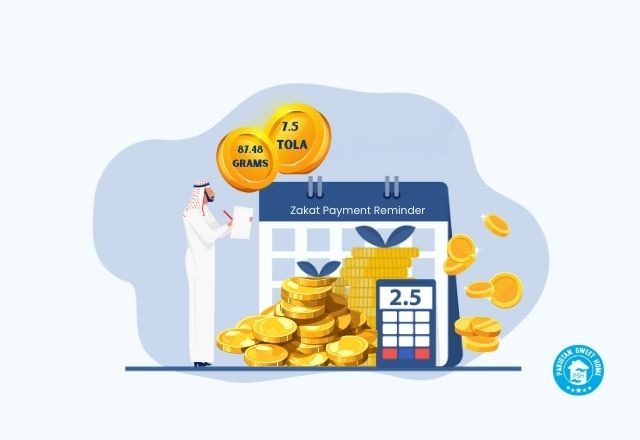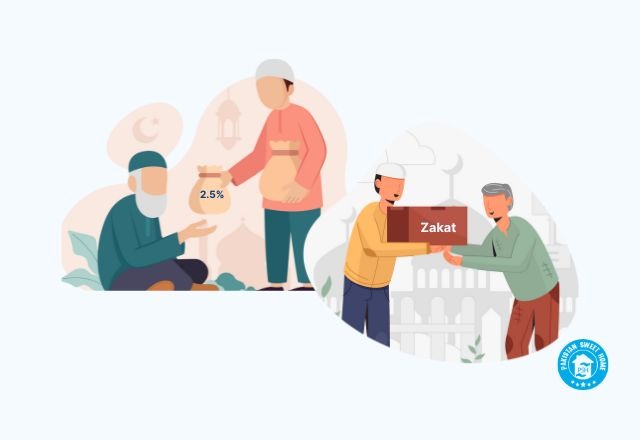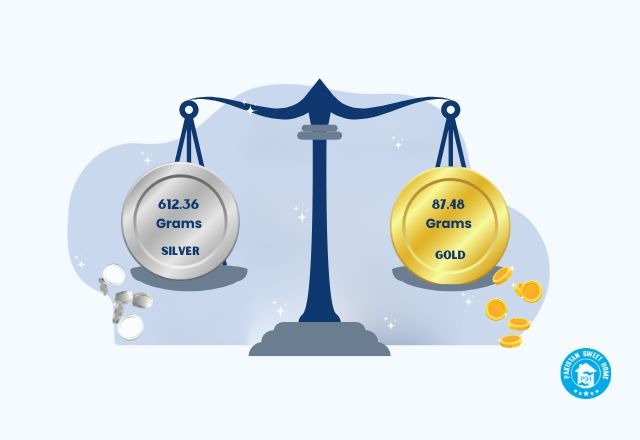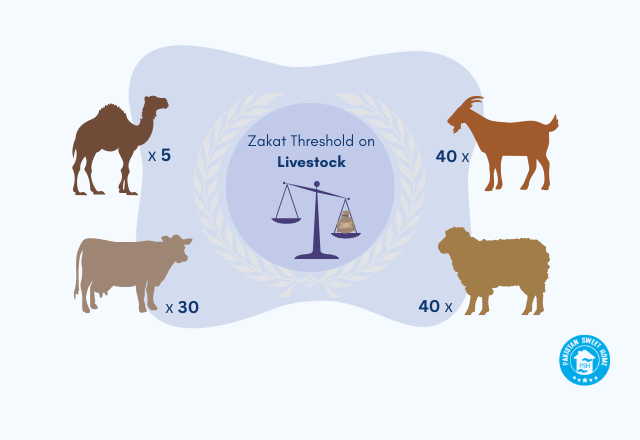
- DONATE
- SPONSOR A CHILD
- Zakat calculator
- SIGN IN
-
- About Us
- FAQ's
- Contact
- Get Involved
- Admissions
- Sign In
- SPONSOR A CHILD ZAKAT CALCULATOR DONATE
-
info@pakistansweethome.org.pk
(051) 4865856
+92 335 1118477
Are you aware of the Zakat obligations on agricultural produce?
Agriculture is the backbone of many economies, providing both sustenance and livelihood.
Yet, many farmers and landowners overlook an essential part of their responsibilities—paying Zakat on crops they produce. This neglect doesn’t just prevent the fair distribution of wealth; it also goes against the spirit of social justice
Zakat on agricultural produce ensures that the wealth created from the earth circulates within society.
Let’s explore the types, nisab, conditions, and timings of Zakat on agriculture products.
The two types of agricultural produce subject to zakat are as follows:
The Messenger of Allah (peace and blessings be upon him) explained that the nisab for agricultural produce is five wasqs, as mentioned in the hadith:
“There is no Zakat on grains or dates until such items weigh five wasqs” (Muslim).
Each wasq equals 60 saa‘s, making the total nisab 300 saa‘s.
Note: Mithqal is a traditional unit of weight, equivalent to 4.25 grams.
The saa of the Prophet (peace and blessings be upon him) is equivalent to two cupped handfuls by an average-sized person, and a mudd equals one handful. This traditional measurement is essential, as Zakat is only due if the harvested crop meets this threshold.
Abu Sa’id al-Khudri (may Allah be pleased with him) further narrated:
“No Zakat is due on less than five awaqs, camels, or wasqs.”
Modern scholars estimate the Zakat nisab to be approximately 653 kilograms for fruits or crops, depending on their weight and type.
The rate of Zakat due to agricultural produce, including grains and fruits, varies depending on the method of irrigation:
This ruling is based on the following Prophetic teachings:
The Prophet Muhammad (peace be upon him) said:
“One-tenth is paid from that which was irrigated by water from the sky, rivers, and streams. As for that irrigated by As-Saniyah, half of one-tenth is payable.”
[Muslim]
"One-tenth is paid on crops irrigated by rain, streams, or self-irrigation from roots or floodwater. And as for that which was irrigated by An-Nadh (irrigated by wells or manual methods), half of one-tenth is paid.”
(Al-Bukhari)
If the irrigation method varies, meaning one is more dominant, the rate is adjusted. The rate reflects which method benefits the crops more. In cases where there is uncertainty, the method that is deemed more beneficial should determine the zakah rate.
Shaykh Ibn ‘Uthaymeen (may Allah have mercy on him) explained that if irrigation is equally split, zakah is due. The rate in such cases is three-quarters of one-tenth. If one method is more beneficial, that method should be taken into account when determining the zakah rate.
The following rules must be met for Zakat to apply to grains and fruits:
If crops are sold before Zakat is paid, they cannot be substituted with cash. However, if there is a genuine need, cash may be allowed. The majority of scholars hold that Zakat should be given from the harvest itself.
Shaykh Ibn ‘Uthaymeen and An Nawawi (may Allah have mercy on him) stated that Zakat cannot generally be paid in cash. But Maalik considered it permissible to give dirhams (silver coins) in place of dinars (gold coins), and vice versa.
However, it may be allowed in cases of pressing need. For instance, if the Zakat is due on livestock or crops, but the individual does not have the physical items to give, they may offer equivalent value if necessary.
The obligation to pay Zakat for grains and fruits on time is derived directly from the Quran.
Allah (SWT) commands:
"He is the One who brings forth gardens and palm trees, olives, and pomegranates. These crops appear similar, yet they differ in taste. Enjoy the fruits they yield and give their due at harvest, but avoid waste. Surely, He does not love those who waste."
(Surah al-An’am: 141)
Unlike other forms of wealth, Zakat on plants and fruits does not require the passage of a full lunar year. It is paid once at the time of harvest, even if some of the produce is stored for later use.
If a partnership exists in which one partner provides the land and the other works it, Zakat is due on each partner's share. This applies only if their respective shares exceed the Zakat Nisab threshold. If one partner’s share falls below the Nisab, there is a difference of opinion among scholars.
Some hold that Zakat should still be paid from the entire yield as if it were owned by a single individual. Thus, both partners would pay Zakat from their respective shares after the Zakat has been calculated for the whole crop.
In conclusion, Zakat on agricultural produce is an essential obligation that requires careful understanding. It is important to know the types of crops subject to Zakat, such as grains and fruits, and the nisab that determines how much of the harvest is subject to Zakat.
The timing for Zakat, whether for grains or fruits, is crucial, with Zakat due once the crops are ready for harvest. Conditions such as the type of irrigation used, whether natural or artificial, also affect the Zakat rate.
Additionally, Zakat on partnership farms involves specific rules that both partners must follow to ensure they fulfill their obligations properly.
When giving Zakat, it's important to ensure that your contribution reaches those who truly need it, just as Islam intended. Pakistan Sweet Home, a trusted shelter for orphaned children, offers a meaningful way to fulfill your obligation through orphanage donation. By supporting these young souls, your Zakat not only purifies your wealth but also sows the seeds of hope and a better future.
Zakat on crops is calculated after harvesting when they meet the Nisab (approx. 612 kg). The Zakat rate is:
No, Zakat does not apply to agricultural land unless it is bought for resale purposes. However, Zakat is due to the produce from the land, such as fruits, vegetables, and crops.
Yes, Zakat is due on fruits when they ripen. The Zakat rate is 10% for naturally irrigated fruits and 5% for artificially irrigated ones, payable at harvest time.
Zakat on wheat is 10% of the harvest if irrigated naturally and 5% if irrigated artificially, due once the wheat is harvested.
Example:
1. If you harvest 1000 kg of wheat irrigated naturally, 10% (100 kg) is due as Zakat.

WRITTEN BY
Ali Raza (Zakat and Sadaqah Regulations)
Ali Raza holds a Master of Arts in Islamic Studies and is an expert in Islamic theology and jurisprudence. Specializing in Zakat, Sadaqah, and other Islamic donations, Ali's writings provide valuable insights into the religious and ethical aspects of charity. His work for Pakistan Sweet Homes aims to educate and inspire readers to support orphan care and charitable initiatives, making him a key contributor to the organization's mission.
Ali Raza holds a Master of Arts in Islamic Studies and is an expert in Islamic theology and jurisprudence. Specializing in Zakat, Sadaqah, and other Islamic donations, Ali's writings provide valuable insights into the religious and ethical aspects of charity. His work for Pakistan Sweet Homes aims to educate and inspire readers to support orphan care and charitable initiatives, making him a key contributor to the organization's mission.
Hadith About Zakat: A Prophetic Guide on Obligatory Charity

How to Calculate Zakat on Cash?

How to Calculate Zakat on Gold?

How to Calculate Zakat on Property?

Zakat on Salary: Calculations, Formula, Examples, Scenarios

10 Key Reasons Why Zakat is Important in Islam

The Benefits of Zakat in Islam

The Eight Recipients of Zakat (Masarif-e-Zakat)

What is the Difference Between Zakat and Sadaqah in Islam?

Zakat al-Fitr (Fitrana): The Zakat of Ramadan

What is the Nisab of Zakat in Islam?

Zakat on Livestock: Camels, Cattle, Goats & Sheep
